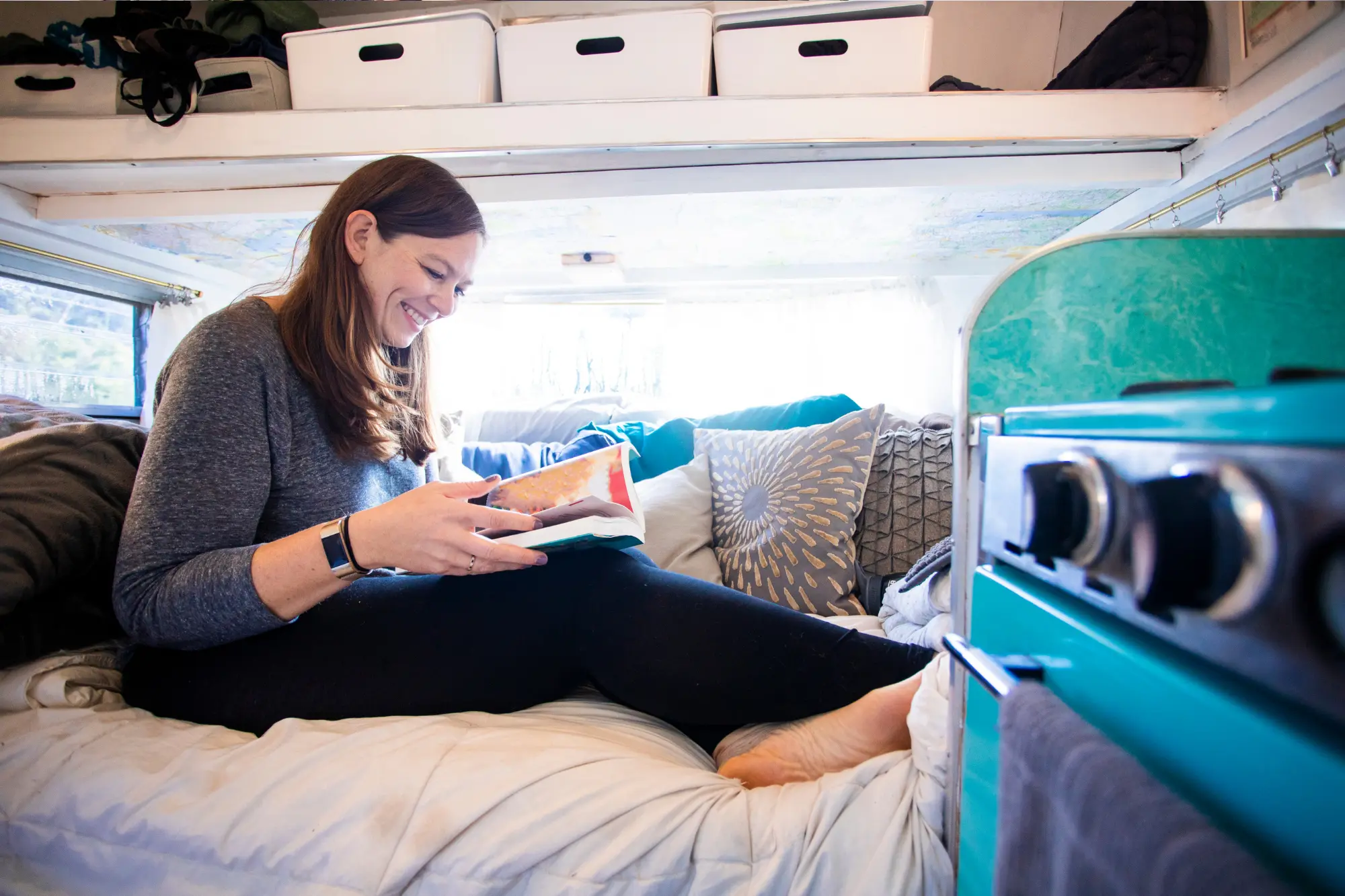Travel nursing is a great way to see new places, gain experience, and grow your career. But one question always comes up: where will you live during assignments? While some nurses choose short-term rentals, more and more are turning to full-time RV living. It's flexible, cost-effective, and perfect for life on the move.
At My Financing USA, we’ve helped people finance their dream RVs for over 20 years. If you’re a nurse ready to take your life and job on the road, here’s how to do it—and how to pay for it.
Why Nurses Choose Full-Time RV Life
Living in an RV gives you freedom. You don’t have to search for new housing with every assignment. Your home moves with you, and that means no packing and unpacking over and over. Your RV becomes your own personal space—comfortable, familiar, and always there.
If you have pets or family traveling with you, RV life makes things simpler. Many RV parks welcome pets and offer monthly stays. Plus, traveling the country in your off-time adds a sense of adventure you won’t get from a short-term apartment.

Types of RVs to Consider
Choosing the right RV depends on your needs and budget. Here are the main types:
Class A Motorhomes: Big, bus-like RVs with lots of space. Great for comfort, but harder to drive.
Class C Motorhomes: Mid-sized RVs built on a truck frame. They’re easier to handle and have plenty of space.
Class B Motorhomes (Camper Vans): Compact and efficient. Good for solo nurses or couples.
Travel Trailers: These are towed behind a vehicle and come in many sizes.
Fifth-Wheel Trailers: Large trailers that hook into the bed of a pickup truck. These offer a lot of living space.
When picking your RV, think about storage, insulation, and the features you need to live and work comfortably.

Is It Cheaper to Live in an RV?
For many nurses, yes. While you’ll spend money upfront on your RV, it often costs less in the long run compared to renting housing for each assignment.
Here’s a breakdown of the main costs:
- RV Purchase: Your biggest cost, but financing makes it manageable.
- RV Parks: Monthly fees vary, but are usually cheaper than rent.
- Fuel: You’ll need to budget for gas when moving between assignments.
- Maintenance: Like any vehicle or home, RVs need upkeep.
- Insurance: RV insurance is a must and depends on your RV’s value and your driving record.
- Internet: A mobile hotspot or Wi-Fi booster keeps you connected on the road.
Owning an RV helps you avoid short-term rent, utilities, and constant moving costs. Over time, it can be a smart financial move.

How RV Financing Works
Getting an RV loan is similar to getting a car loan. The loan lets you spread out payments over time, making your RV more affordable.
Here’s what lenders look at:
- Credit Score: Higher scores get better interest rates. Even with fair credit, you may still qualify.
- Down Payment: Putting money down lowers your monthly payment and interest costs.
- Debt-to-Income Ratio: Lenders check that you can afford the loan based on your income.
- Loan Term: RV loans can go up to 20 years. Longer terms mean lower monthly payments, but more total interest.
- Interest Rate: This affects your monthly payment and total cost.
Getting pre-approved helps you shop smarter. It shows what you can afford and gives you more confidence when choosing your RV.
Choosing the Right Loan Partner
The best RV loan depends on your credit, budget, and the RV you want. At My Financing USA, we work with many lenders to help you compare offers and find the best deal.
Look for:
- A competitive interest rate
- A loan term that fits your budget
- Low or no fees
- Helpful customer service
We help you through every step, from paperwork to approval, so you can focus on planning your journey.
What RV Life Is Really Like
RV travel nursing can be rewarding, but there are a few things to prepare for:
- Finding RV Parks: Look for ones near your assignments. Monthly stays are usually the best value.
- Mail & Address: Use a mail forwarding service and choose a permanent address for legal purposes.
- Internet Access: Invest in a mobile hotspot or signal booster.
- Maintenance: Learn basic RV upkeep to avoid expensive repairs.
- Safety: Choose well-rated parks and stay aware of your surroundings.
Living in an RV takes some planning, but many travel nurses find it’s worth the effort.

Is RV Life for You?
It’s not for everyone—but it might be perfect for you if you:
- Love to travel and explore
- Don’t mind a smaller living space
- Want to save money on housing
- Enjoy a flexible, mobile lifestyle
Challenges include limited space, learning how to maintain your RV, and planning ahead for places to stay. But if you’re open to learning and excited about life on the road, this could be a great fit.
Get Started Today
RV life is more than a trend—it’s a smart, adventurous way to combine work and freedom. And with the right financing partner, it’s easier than ever to get started.
At My Financing USA, we help you secure the RV loan that fits your needs. We’ve helped thousands of people hit the road, and we’d love to help you too.
Ready to start your RV journey?
Apply Now for RV Financing at My Financing USA!
FAQs:
What is the minimum credit score required to qualify for a loan?
We can work with credit scores as low as 550. Our programs are designed to help customers across a wide range of credit situations, including those with past credit challenges.
How long are the loan terms available?
We offer loan terms of up to 20 years, giving you the flexibility to choose a repayment schedule that works best for your budget and goals.
What is the minimum loan amount I can apply for?
Our loan starts at $10k. This applies to both dealer and private party purchases.
What interest rates do you offer?
What types of purchases are eligible for financing?
We finance both dealer and private party purchases and can approve loans for LLCs, trusts, and full-time RVers. We do not finance park models or schoolies..
Can I finance and RV or boat if I'm a full-time traveler?
Yes. We offer financing options designed for full-time RVers and boaters.



